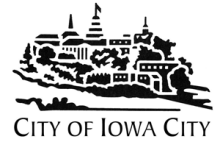How Will Broadband Networks Handle Quarantine Congestion? Mostly OK
As schools and businesses ask people to stay home to reduce the spread of Covid-19 coronavirus, I wanted to share some thoughts about how I expect broadband Internet access networks will handle the change and increase in broadband traffic in residential areas.
Our first reaction is that, as with so many areas with network effects, the rich will get richer. This is to say that historic inequities will be exacerbated — people that have been able to afford the high-quality networks will probably see very little disruption and those who have older networks may be effectively disconnected.
Better Network Scenarios
Those on fiber optic networks probably won't notice major changes in demand. This is the easy one — it is why we have long believed that fiber optics should be the goal for the vast majority of Americans.
Most modern cable networks should be also able to handle the demand — especially on the download end. This is good because 2 out of 3 Americans with broadband gets it from a cable network. Upgrades in recent years from the aggressive cable companies (Comcast Xfinity, Cox, and some of the many smaller cable networks — Charter Spectrum less so) should allow more than sufficient download capacity even if home video streaming increases significantly. But in smaller towns, where the local cable companies haven't been able to afford those upgrades and the bigger cable providers have just ignored them, I would expect to see intermittent and in some cases, persistent congestion problems from bottlenecks.
In the upstream direction, the cable networks will have some challenges. I wouldn't expect most Comcast or Cox markets to have too many problems, though neighborhoods with lots of professionals using video conferencing tools could congest. I would expect Charter Spectrum, Mediacom, and many of the others to have frequent congestion for upstream connections, lowering throughput extremely at times.











